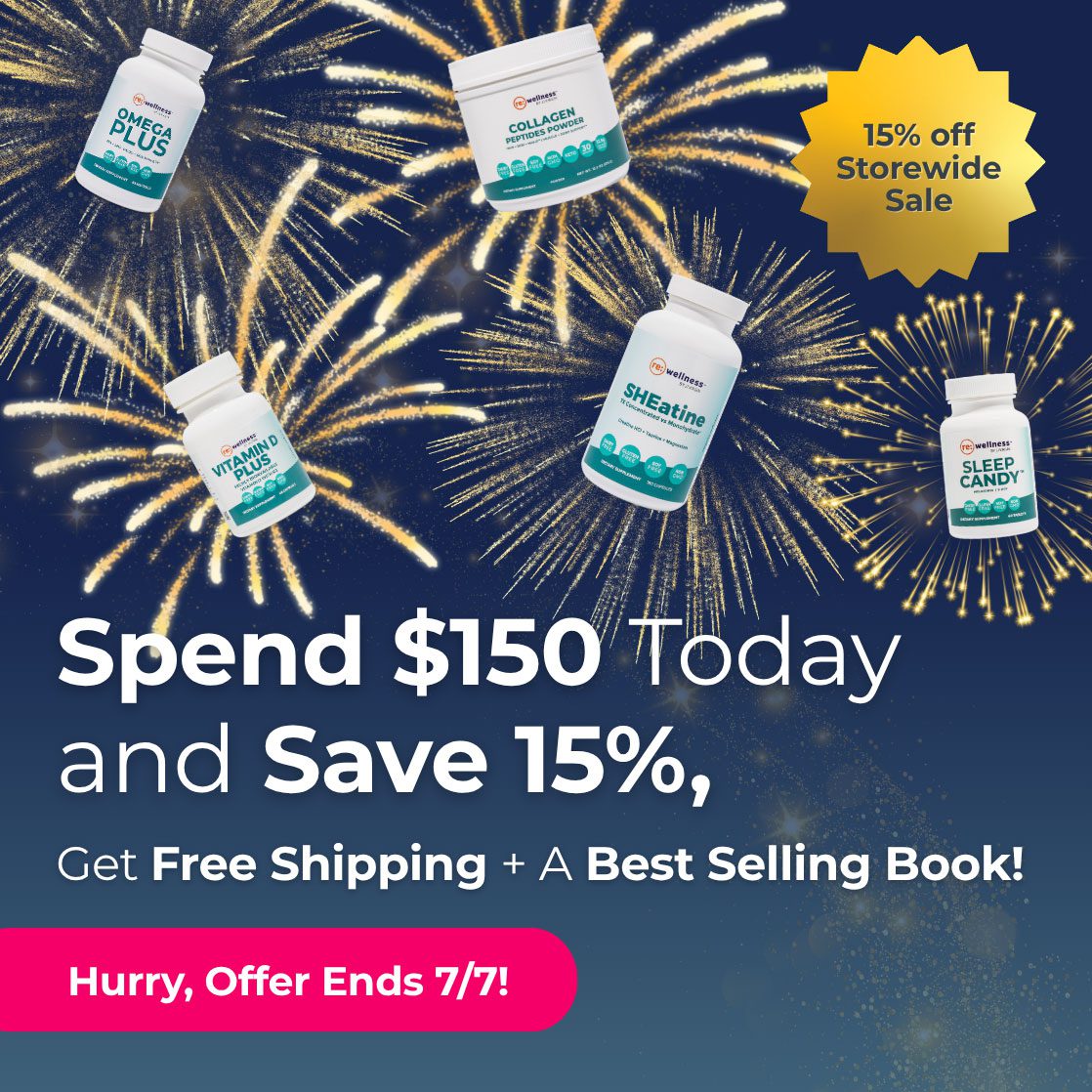For many, the holidays bring forth a bit of chaos, stress, and anxiety. Although this time of the year is symbolized by gratitude and peace, the busyness caused by the seemingly never-ending list of “to-dos’” may override that sense of calm. Occasional anxiety (e.g., temporary holiday stress) is an expected part of life and is not as alarming as prolonged stress. However, when the body is in constant fight-or-flight mode, running around in a state of chronic stress, it negatively impacts almost every system in the body, particularly the endocrine system.
HPA Axis Dysfunction & Neurotransmitter Imbalances
Physiological and emotional stressors trigger the release of more cortisol into circulation stimulating the hypothalamic-pituitary-adrenal (HPA) axis. An overactive HPA axis wreaks havoc on the adrenal glands and can lead to hormonal imbalances, blood sugar dysregulation, inflammation in the gut/intestinal microbiome imbalance, infertility, adrenal exhaustion, and poor mood or a decrease in neurocognition. These physiologic imbalances may lead to diagnosed mood disorders such as generalized anxiety disorder (GAD), panic disorder, and/or major depressive disorder (MDD), and possibly even more serious conditions like Cushing’s syndrome or Addison’s disease. Chronically elevated levels of glucocorticoids impact the production and signaling of the neurotransmitters the calming neurotransmitter, gamma-aminobutyric acid (GABA), the feel-good hormone, serotonin.
Characteristics of anxiety and panic disorder may manifest in different ways depending on the individual; some of the most common signs and symptoms include the following:
Being easily fatigued
Panic attacks
Heart palpitations or accelerated heart rate
Excessive sweating, trembling or shaking
Shortness of breath
Poor concentration; forgetfulness or mind going blank
Being irritable, easily angered or frustrated
Disturbed memory
Insomnia, restlessness, or rumination
Disrupted sleep, difficulty falling or staying asleep, waking up feeling unrested/groggy
Difficulty controlling feels of worry
Muscle tension or pain, headache or migraine
Sense of impending doom, feeling out of control
Complexities of Pharmacotherapy
Antidepressant medication such as selective serotonin reuptake inhibitors (SSRIs) is often the first line of treatment in the conventional biomedical health model. Although short-term use is warranted in certain circumstances and situations, antidepressant and anxiolytic medications have been shown to not only be ineffective in the long-term but also create physiological imbalances by depleting nutrients and causing deleterious and unwanted adverse effects. And often those who taper or wean off of medication may experience a relapse and a higher risk of discontinuation symptoms with abrupt termination use. A retrospective study published in Psychiatry Research found that 72% of depressed subjects who received “brief dynamic therapy” did not experience depressive recurrences compared with 46% of those treated with antidepressant pharmacotherapy. A multicenter, double-blind, placebo-controlled trial published in Lancet Psychiatry in November 2019 concluded that a common antidepressant drug was ineffective and provided no clinically meaningful reduction in primary care patients with depressive symptoms after 6 weeks of use and that even after 12 weeks of use there was very weak evidence of reduced depressive symptoms.
Support for HPA & Neurotransmitter Balance
Stress-management techniques and strategies for managing and preventing the overwhelm of holiday stress are essential and may support optimal health. Taking deep, slow breaths, practicing mindfulness and meditation when patients feel the discomfort begins to rise in their bodies, are ways to support the nervous system, especially during this hectic season, and shown in research to modulate the brain mechanisms that affect behavior and anxiety. Bringing to patients’ awareness that everything will get accomplished as it should and recognizing that they cannot please everyone, or be in two places at one time, are great methods to ground down and shift the nervous system from a sympathetic to a parasympathetic state. A recent study published earlier this year showed that regular exercise, yoga practice, and mindfulness-based meditation provide benefits for those with depression and anxiety and that using these modalities as mono- or adjunct-therapy significantly improves symptoms. Results of a six-week yoga and meditation program for college students preceding final exams “suggest that adopting a mindfulness practice for as little as once per week may reduce stress and anxiety.”
In addition to a nutrient-dense, anti-inflammatory, whole food diet that is rich in polyphenols and micronutrients, urge your patients to avoid stimulants and depressants such as caffeine, sodas, sugary beverages, alcohol, artificial sweeteners, and refined or processed sugars and carbohydrates that may exacerbate feelings of anxiety, stress, and poor mood. A review in the journal Neuroscience and Biobehavioral Reviews shows that sucrose (sugar) (and other highly palatable food) overconsumption “results in pathophysiological consequences such as morphological neuronal changes, altered emotional processing, and modified behavior”. Overconsumption of inflammatory processed foods and refined sugars and a lack of dietary fiber from non-starchy vegetables can also disrupt the intestinal microbiome which can lead to gut dysbiosis (e.g., SIBO, Candida albicans). Research shows that certain strains of pre- and probiotics have a bidirectional interaction with the gut microbiome and the brain, and may actually help modulate neural mechanisms, thus supplementing with certain strains may help support
A review published earlier this year highlights the anxiolytic properties of omega-3 (n-3) polyunsaturated fatty acids (PUFAs) and N-acetyl-cysteine due to their ability to counteract oxidative stress, brain inflammation, and glutamatergic dysfunction, and may, be a better alternative than pharmaceutical drugs. In a recent animal model, n-3 PUFA administration at doses of 100 mg per 100 g of body weight prevented PTSD-induced memory impairment by normalizing hippocampal antioxidant mechanisms. Patients may consider incorporating more fatty fish such as sardines, sockeye salmon, anchovies, herring and mackerel into their diets or taking a high-quality potent omega-3 fish oil supplement daily.
Low magnesium status may induce anxiety and HPA axis dysregulation; magnesium threonate supplementation promote both muscle and mental relaxation. Full-spectrum cannabinoids are indicated in helping improve symptoms of anxiety and stress. Adaptogens such as Rhodiola rosea, cordyceps, ashwagandha, and ginseng help the body maintain endocrine, neurotransmitter, and hormonal homeostasis, increase resilience toward stressors by gently reducing catecholamines. Supplementing with vitamins B3, B5, and B6 supports the adrenal glands, while GABA, L-theanine, taurine, and glycine help calm the body’s stress response, nervous system, and neurotransmitter balance. These are all great supplemental tools for patients who may be experiencing a heightened sense of stress this time of year, or as a preventative measure.






